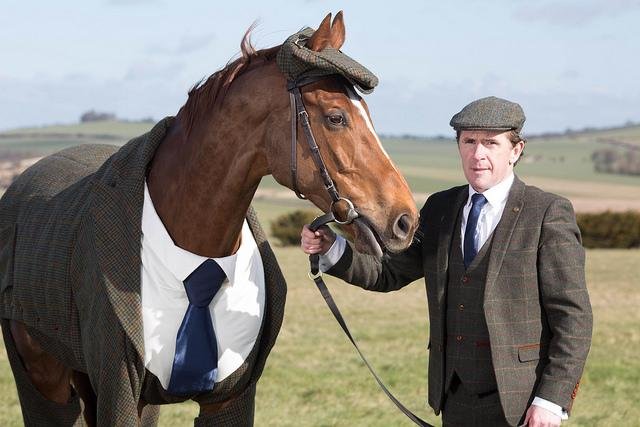"Some models can be real divas, but veteran racing horse Morestead was calm and a pleasure to work with," she said.
The suit took four weeks to complete and used ten times as much fabric as the equivalent of a human suit.
"Creating the world's first tweed suit for a horse has been one of the biggest challenges that I have faced in my career as a designer," Sandham-King said. "We have used 18 metres of genuine Harris Tweed to create the head turning fashion garment."
Morestead became the first horse to follow the popular trend of wearing tweed at the annual horse racing festival in England.
Dr. Geoff Ellis calculated that about 200 miles of tweed on average is worn at the festival, enough to stretch from the course to Ireland.
"Tweed is undergoing a massive revival and this year's Cheltenham Festival will see the most tweed worn since the 1960s," Sandham-King said.















